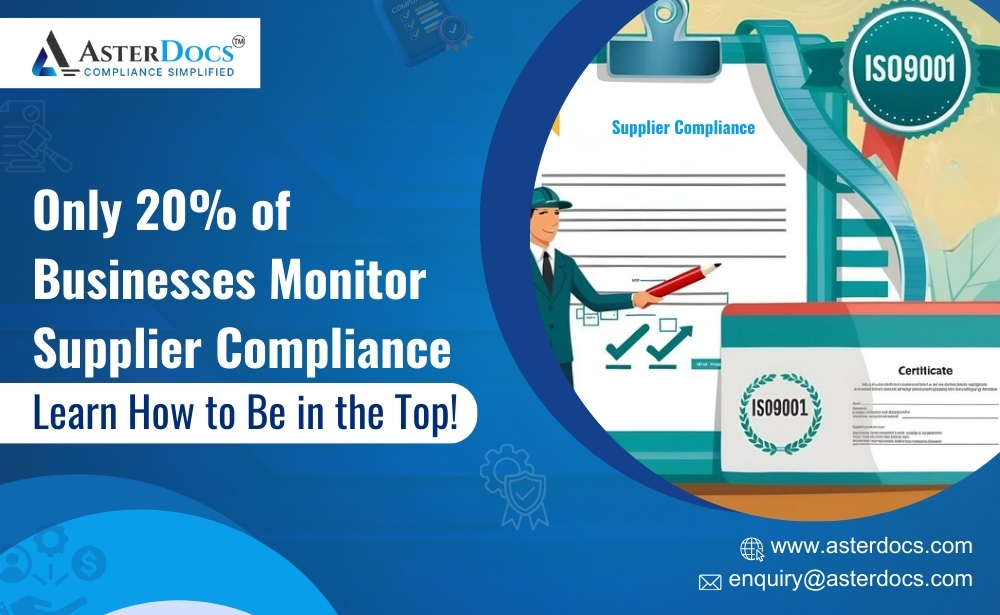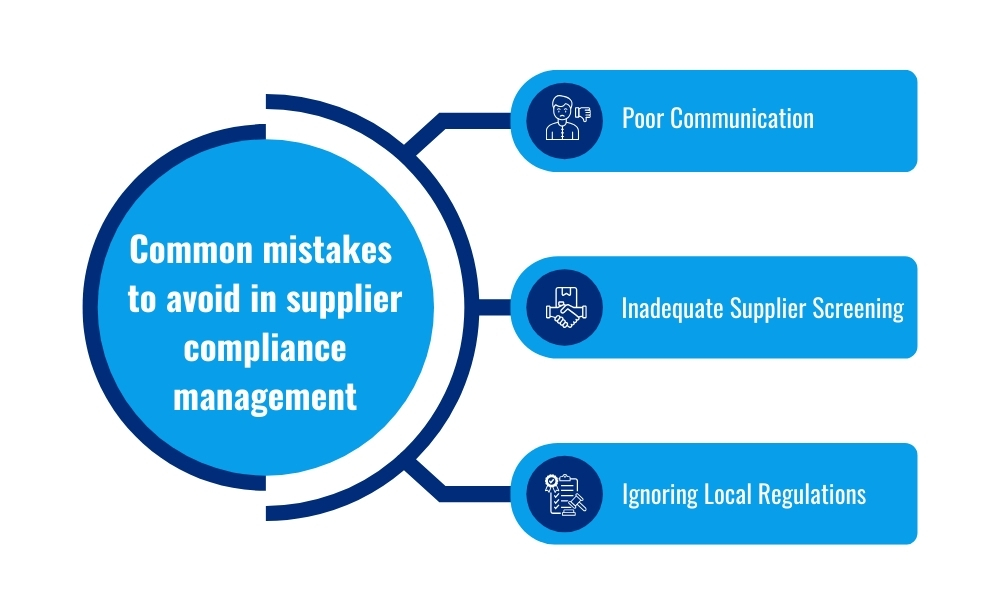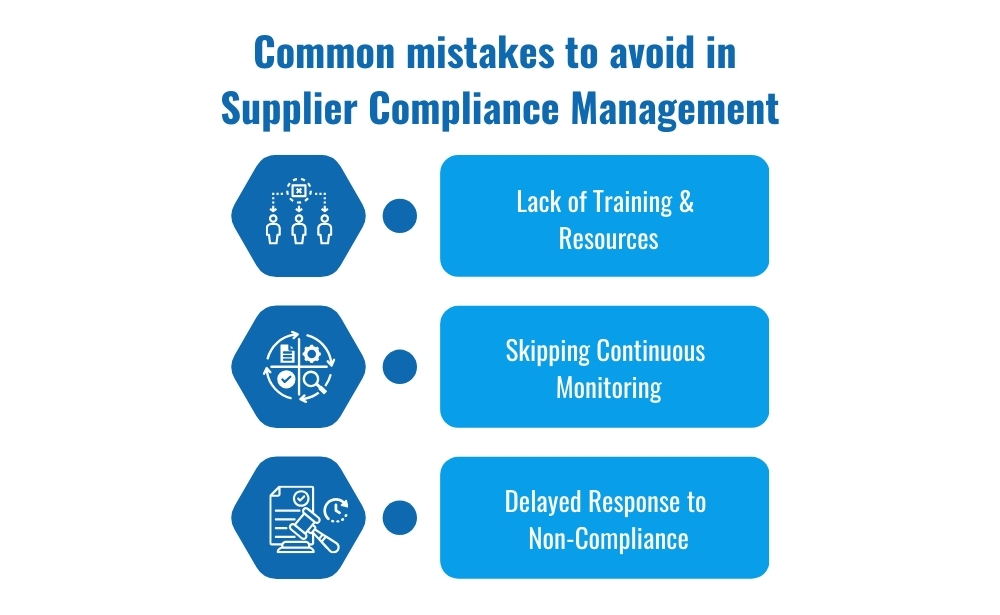Navigating supplier compliance is a challenging task, fraught with a maze of regulations, ethical obligations, and stringent quality standards. Even experienced professionals can find themselves entangled in this complex landscape. However, recognizing these common pitfalls in supplier compliance management and knowing how to sidestep them can be the key to maintaining successful partnerships and avoiding costly compliance failures.
Here Are 6 Common Pitfalls to Avoid in Supplier Compliance Management:
1: Lack of Clear Communication
One of the most significant issues in supplier compliance management is poor communication. When expectations aren’t clearly defined, suppliers may fail to meet compliance standards simply because they didn’t fully understand what was required.
How to Avoid It:
- Set Clear Expectations: Clearly outline compliance requirements from the outset. This includes regulatory standards, quality expectations, and ethical guidelines.
- Regular Updates: Maintain open lines of communication with your suppliers. Regular updates and check-ins can ensure that everyone stays on the same page.
2: Inadequate Supplier Vetting
Rushing the supplier selection process can lead to working with vendors who are ill-equipped to meet your compliance standards. This can result in non-compliance, legal issues, and even damage your company’s reputation.
How to Avoid It:
- Thorough Due Diligence: Conduct comprehensive background checks on potential suppliers. Assess their history, compliance records, and ability to meet your standards.
- Ongoing Evaluation: Supplier Inspection shouldn’t end after the initial selection. Regularly reassess your suppliers to ensure they continue to meet your compliance requirements.
3: Overlooking Local Regulations
When dealing with suppliers from different regions, it’s easy to overlook specific local regulations. This can lead to inadvertent non-compliance, which may have serious legal ramifications.
How to Avoid It:
- Stay Informed: Keep up-to-date with the regulations in every region where your suppliers operate. This may require working with local experts or legal advisors.
- Tailored Compliance Plans: Develop compliance strategies that are customized for each region, considering local laws, customs, and business practices.
4: Insufficient Training and Resources
Expecting suppliers to meet compliance standards without providing adequate training and resources is a recipe for failure. Without proper guidance, even well-intentioned suppliers can fall short of your expectations.
How to Avoid It:
- Provide Training: Offer comprehensive training programs to your suppliers, covering all aspects of your compliance requirements.
- Resource Support: Equip your suppliers with the necessary tools and resources to meet compliance standards, such as access to regulatory guidelines and compliance software.
5: Neglecting Ongoing Monitoring
Compliance isn’t a one-time event; it’s an ongoing process. Neglecting continuous supplier compliance management can lead to lapses that go unnoticed until it’s too late.
How to Avoid It:
- Implement Continuous Monitoring: Use automated tools to regularly track and audit supplier compliance. This allows you to quickly identify and address any issues that arise.
- Regular Audits: Schedule periodic audits of your suppliers to ensure ongoing compliance with your standards.
6: Failing to Address Non-Compliance Swiftly
When non-compliance is identified, delaying action can exacerbate the problem. The longer it takes to address the issue, the more significant the potential impact on your business.
How to Avoid It:
- Immediate Action: Establish protocols for swiftly addressing non-compliance. This might include corrective action plans, penalties, or, in severe cases, terminating the supplier relationship.
- Open Discussion: Foster an environment where suppliers feel comfortable reporting potential compliance issues. This can help you address problems before they escalate.
Conclusion
Supplier compliance management is a complex but crucial aspect of maintaining a successful and ethical business. By being aware of these common pitfalls and taking proactive steps to avoid them, you can ensure that your supply chain remains robust and compliant.
Looking to streamline your supplier compliance management? AsterDocs offers comprehensive tools to help you manage supplier relationships, ensure compliance, and mitigate risks. Start your journey towards a more compliant supply chain with AsterDocs today!















